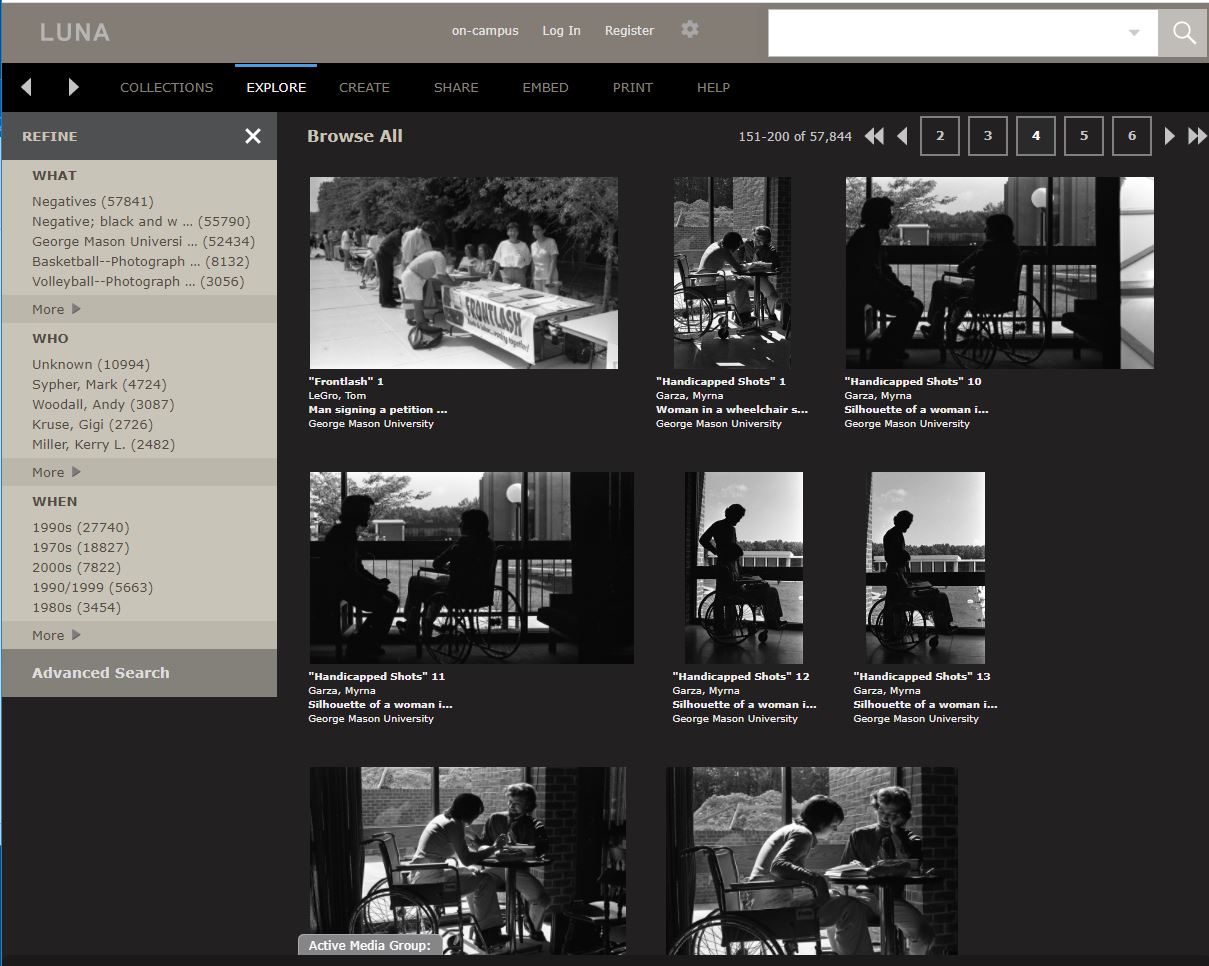This post was written by Rachel Lavender, Metadata Specialist. Rachel has a Bachelors of Public History from the University of Wisconsin – Eau Claire, a Masters of Library and Information Studies from the University of Wisconsin – Madison, and is currently pursuing a Masters in Applied History from George Mason University.
In the early 20th century, Sir Hilary Jenkinson published his Manual of Archive Administration which greatly influenced modern archival theory. Among the arguments that he made are the principle of provenance, the interrelatedness of archival records, the objectivity of the archival record, and the impartiality of the archivist. While the archival field still respects provenance and the interrelatedness of archival records, archivists recognize that neither they or the records that they process and house are impartial or objective. Today, archives and special collections, including George Mason University’s Special Collections Research Center (SCRC) in conjunction with Metadata Services, are examining the way that they describe and catalog archival records.
SCRC recognizes that neither archival records nor archivists are impartial. We all have our own biases both explicit and implicit. Archivists have to make choices during appraisal, description, preservation, and access. While we attempt to make the best choices, there will always be subjectivity at play. With the acknowledgement that we can not create a perfect scenario, we strive to do no harm.
Many of SCRC’s collections were created and/or processed many years ago when some terminology that we now condemn was commonly used. A large number of our collections use language that the creators provided. We have begun a journey of reparation work to better represent marginalized folks in our collections. One of the ways that we are doing this is by creating a form where patrons can let us know when they find terminology in our collections that they find problematic and/or harmful. In this form, the researcher will be able to tell SCRC staff where they found the term, what the term is, and provide any further comments that they might have. SCRC and Metadata Services staff will then be able to review the form submissions and make thoughtful changes as seen fit. SCRC and Metadata Services staff have also been combing through digital collections records stored in LUNA, our digital content management system. When Library of Congress subject headings don’t provide appropriate terms for archivists to utilize, staff will consult other ontologies such as the Homosaurus and terms curated by the University of British Columbia X̱wi7x̱wa Library.

Examples from LUNA that will be examined during the reparative workflow.
The George Mason University SCRC recognizes that like other archives and special collections across the country, we have work to do. Archives contain a great deal of power and have the ability to do considerable good or bad. We will continue to try to better ourselves and will look to other major universities and archives across the world to increase our awareness of the increasing amount of reparations projects being conducted.
Follow SCRC on Social Media and look out for future posts on our Facebook, Instagram, and Twitter accounts. To search the collections held at Special Collections Research Center, go to our website and browse the finding aids by subject or title. You may also e-mail us at speccoll@gmu.edu or call 703-993-2220 if you would like to schedule an appointment, request materials, or if you have questions. Appointments are not necessary to request and view collections.

